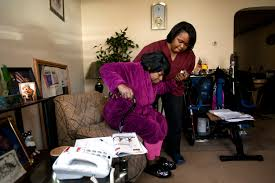|
|
New Report Details Patient Advocacy Groups’ Reliance on Big Pharma Donations |
|
An explosive new report by Patients For Affordable Drugs found that fifteen prominent patient advocacy groups, including groups that focus on specific diseases or conditions, have taken millions of dollars from drug corporations and pharmaceutical trade associations.
The report also found that none of the 15 groups they examined supported allowing Medicare to negotiate lower drug prices. All but one failed to fully disclose the total funding they received from the pharmaceutical industry and 12 have pharmaceutical industry representatives on their boards.
The report authors said their research “raises serious questions as to whether (the groups) are constrained from advocating for patients on issues that would hurt the profits of their industry funders.”
“The pharmaceutical industry will go to any length to protect its profits and keep drug prices high,” said Richard Fiesta, executive director of the Alliance. “It is no accident that Americans pay the highest prices in the world for prescription drugs. Congress must put patients before profits, and allow Medicare to negotiate lower drug prices now. We can’t wait any longer.”
|
|
Legislation Introduced to Enact President Biden’s Caregiving Plan |
|
Nearly 820,000 seniors and Americans with disabilities are currently on wait lists to receive the care they need at home, rather than in an institution. President Biden promised to take action on this problem during his campaign, and called for expanding home and community-based services in his American Jobs Plan.
Last week Sen. Bob Casey (PA), Chairman of the U.S. Senate Special Committee on Aging, Senate Finance Committee Chairman Ron Wyden (OR) and Senate Majority Leader Chuck Schumer (NY), along with Chair of the Health, Education, Labor, and Pensions Committee Patty Murray (WA) and Senators Tammy Duckworth (IL), Maggie Hassan (NH) and Sherrod Brown (OH) introduced the Better Care Better Jobs Act (S. 2210), which would make President Biden’s plan a reality.
|
|
|
The legislation not only strengthens and expands access to quality home care services but also supports the caregiving workforce. States would receive additional Medicaid funding to expand their home and |
|
community-based services (HCBS) to more people. The legislation also provides funding to increase care workers’ salaries.
“Whenever possible, older Americans should be able to get the care they need at home, rather than in an institution,” said Robert Roach, Jr., President of the Alliance. “But to do that we need qualified care workers who are paid a living wage for this difficult work. Congress needs to pass this bill and get it on President Biden’s desk quickly.”
|
|
House of Representatives Passes Legislation to Protect Older Workers from Discrimination |
|
On June 24, the House of Representatives passed H.R. 2062, the Protecting Older Workers Against Discrimination Act, to restore protections for workers age 40 and older.
|
|
|
A recent survey found that 78% of workers aged 40 to 65 say they have experienced age discrimination in the workplace. If the Senate passes this legislation, it will be the first significant age discrimination legislation passed in the United |
|
States since the Age Discrimination Employment Act of 1967.
“Age discrimination is all too real and older workers need protection on the job,” said Alliance Secretary-Treasurer Joseph Peters, Jr. “We are encouraged that the House vote was bipartisan, and urge the Senate to pass it swiftly.” |
|
Calming Computer Jitters: Help for Seniors Who Aren’t Tech-Savvy By Judith Graham, Kaiser Health News |
|
Six months ago, Cindy Sanders, 68, bought a computer so she could learn how to email and have Zoom chats with her great-grandchildren.
It’s still sitting in a box, unopened.
“I didn’t know how to set it up or how to get help,” said Sanders, who lives in Philadelphia and has been extremely careful during the coronavirus pandemic.
Like Sanders, millions of older adults are newly motivated to get online and participate in digital offerings after being shut inside, hoping to avoid the virus, for more than a year. But many need assistance and aren’t sure where to get it.
A recent survey from AARP, conducted in September and October, highlights the quandary. It found that older adults boosted technology purchases during the pandemic but more than half (54%) said they needed a better grasp of the devices they’d acquired. Nearly 4 in 10 people (37%) admitted they weren’t confident about using these technologies.
Sanders, a retired hospital operating room attendant, is among them. “Computers put the fear in me,” she told me, “but this pandemic, it’s made me realize I have to make a change and get over that.”
With a daughter’s help, Sanders plans to turn on her new computer and figure out how to use it by consulting materials from Generations on Line. Founded in 1999, the Philadelphia organization specializes in teaching older adults about digital devices and navigating the internet. Sanders recently discovered it through a local publication for seniors.
|
|
Thanks for reading. Every day, we're fighting to lower prescription drug prices and protect retirees' earned benefits and health care. But we can't do it without your help. Please support our work by donating below. |
|
|
|
|
Alliance for Retired Americans | 815 16th Street, NW | Washington, DC 20006 | www.retiredamericans.org


.png)
